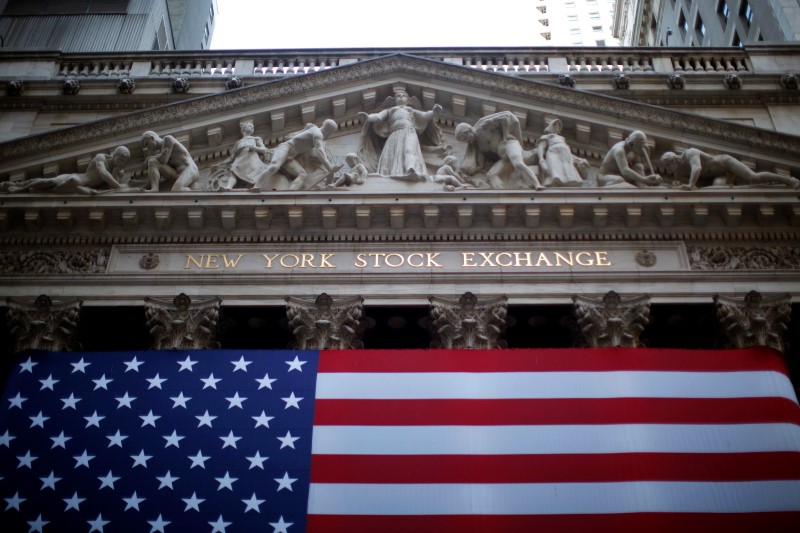LONDON (Reuters) - Higher single-stock volatility, valuation distortions and liquidity concerns could grow due to the surge in popularity of exchange-traded funds (ETFs) which now account for more than a third of U.S. ownership of the S&P 500 (SPX), Bank of America-Merrill Lynch (BofA-ML) said.
The proportion of stocks on the main U.S. benchmark equity index now managed passively has nearly doubled since the 2008 crisis to 37 percent while ETF trading accounts for about a quarter of the daily volume across U.S. exchanges, BofA-ML, said.
ETFs and index-tracking funds offer investors a cheaper way to access financial markets than their "active" fund management peers which aim to beat the benchmark and charge higher fees for doing so.
Steadily rising U.S. equity markets, currently in the ninth year of a bull market, and the proliferation of ETFs that mimic complex quantitative strategies and investment trends and themes at a lower cost, have sparked a rush of inflows into such products as more investors shift to passive investments.
BofA-ML clients have bought a net $160 billion worth of ETFs since 2009 while selling $200 billion worth of single stocks since, the broker said.
The growing influence of ETFs is likely to alter some long-standing fundamentals across financial markets, analysts and investors have said, with the main issues for stock investors revolving around positioning, liquidity and valuation.
The actual shares available for investors to trade, or the true float, "may be grossly overestimated," if the shares held by passive funds, which do not trade in and out of stocks based on fundamentals or events, are excluded.
Vanguard, one of the world's largest asset managers and which manages a roughly $70 billion S&P 500 ETF (P:VOO), now owns 6.8 percent of the top U.S. equity benchmark. The firm owns stakes of more than 10 percent in over 80 stocks in the S&P 500, BofA-ML estimated.
"Large cap US equity managers have had the luxury — and curse — of a liquid, efficient market," said analysts at BofA-ML. "That liquidity is slowly being called into question by the 'ETF-ization' of the S&P 500."
The broker cited Japan, where nearly 70 percent of assets under management at Japan-focused stock funds are now passive, partly due to the Bank of Japan's ETF-buying as part of its quantitative easing programme.
"The victim in Japan has been active equity managers," the broker said.
For investors looking to sidestep any potential pitfalls, BofA-ML, recommends avoiding stocks with very high passive ownership which tend to be more volatile than broader markets and can also see valuations get detached from fundamentals.
